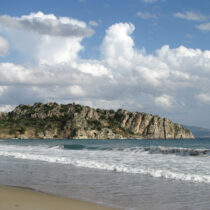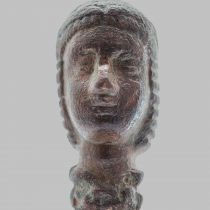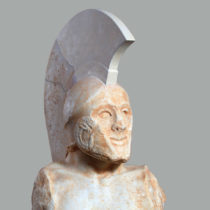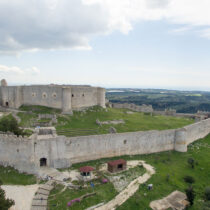UN decides on cultural property
The General Assembly of the United Nations unanimously adopted the Resolution on the “Return or restitution of cultural property to the countries of origin”, introduced by Greece.
International Colloquium on Aristotle
The International Colloquium on Aristotle 2012-2013 has started on Wednesday with a lecture given by Theodosios Tassios, “An Alternative Reading of Aristotle’s Mediation”.
“In the Light of Amarna”. 100 Years of the Nefertiti Discovery
At the 100th anniversary of the discovery of the bust of Nefertiti, the Neues Museum has organized a special exhibition.
Four letters by Tsar Nicholas II sold for record price at “Hôtel des Ventes de Genève”
Souvenirs from Russia's imperial family, including four letters penned by Tsar Nicholas II, achieved a total price of 1.3 million Swiss francs on the auction block.
The dawn of the Greek 20th century
The exhibition "Balkan Wars 1912-1913: The Beginning of the Greek Twentieth Century" opened yesterday and will run until February 10, 2013.
Yannis Tsarouchis at the Benaki Museum
The exhibition opened on December 7 at the Benaki Museum’s annex at 138 Pieros St., and will run until March 31, 2013.
Athens: Heritage and Modernity
Series of lectures and visits lead by some of the top Athenian archaeologists, architects, historians, conservators and planners.
Samos in the Museums Cycle
Samos and the treasures of its two archaeological museums in Vathy and Puthagoreion are featured in this year’s Museums Cycle volume.
The long-awaited “Princesses” have arrived
Opening of the exhibition "Princesses of the Mediterranean in the Dawn of History", which will run until April 2013.
Turkey reclaims sculptures from British Museum
In order to repatriate sculptures created for the Mausoleum of Halicarnassus, Turkey will turn to the European court of human rights.
Studies in Hellenic Culture
The Open University of Cyprus announces that the period of applications for the academic year 2013-2014 is between November 12th 2012 and January 15th 2013.
On the traces of Nero
Part of the paved floor of the orchestra on which Nero once stood as an… actor has recently come to light by archaeologists at the Roman theatre of Nikopolis (Epirus).
Rantidi forest excavations
Survey this year revealed extensive medieval remains located at the eastern area of the Rantidi Forest.
Gendered violence in the past
Session of the 19th EAA Annual Meeting aiming to explore the archaeology of gendered violence, to explore when and how violence is related to gender, and how we can recognize this in past societies.
Greek antiquities travel to Marseille
Designed as a “fictional” exhibition, “Méditerranées” recounts major events in the history of Mediterranean civilisations with Ulysses, in the guise of a modern man, taking visitors from port to port.
The ancient theatre of Sikyon will be restored
“Diazoma” Association will undertake the enhancement and restoration of the ancient theatre of Sikyon.
Late Helladic Megaron at Tzannata, Poros on Kephalonia
The 2nd meeting of the Mycenaean Seminar will be held on Thursday, 20th December.
A. Bounia, A. Nikiforidou, N. Nikonanou, A.D. Matossian, Voices from the Museum
This report presents visitor perspectives on what it means to be a national museum and relations between national museums and identities.
Asia Minor Excavations funded by Stavros Niarchos Foundation
The Amorium Excavation Project in Asia Minor, the construction of a mobile museum for children across Greece are some of the activities of the Stavros Niarchos Foundation.
Part of Philip II’s skeletal material is heading to the NCSR Demokritos
Awaiting for invaluable information.
Orpheus mosaic repatriated to Turkey from Dallas
The Orpheus mosaic has been returned to Turkey from the Dallas Museum of Art, at a ceremony on December 3, in Dallas.
First aid stations at archaeological sites
First Aid Stations will be developed in selected archaeological sites during the summer, according to an announcement of the Cultural Ministry.
Archaeological Museum of Thessaloniki launches mobile app
The Archaeological Museum of Thessaloniki launches a mobile application for Android and iOS devices, developed by undergraduate students within the OSWINDS research group of the Department of Informatics of Aristotle University of Thessaloniki.
The use of caves in west Crete during the Minoan period
Lecture given by Eirini Gavrilaki (Greek Αrchaeological Service, 25th Ephorate of Prehistoric and Classical Antiquities, Museum of Rethymnon, Crete).




























